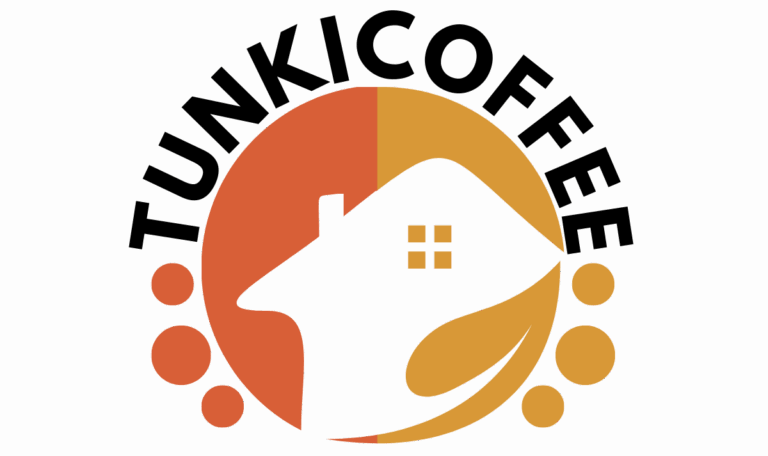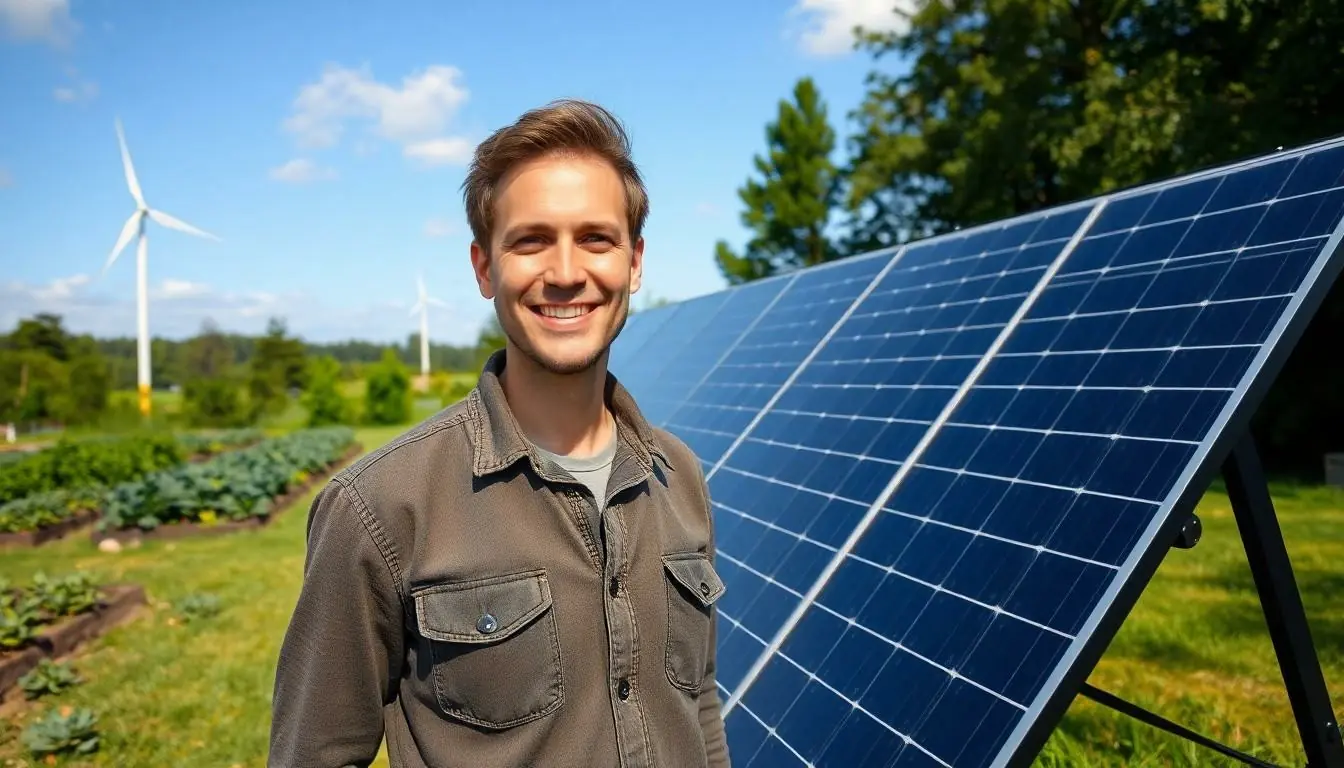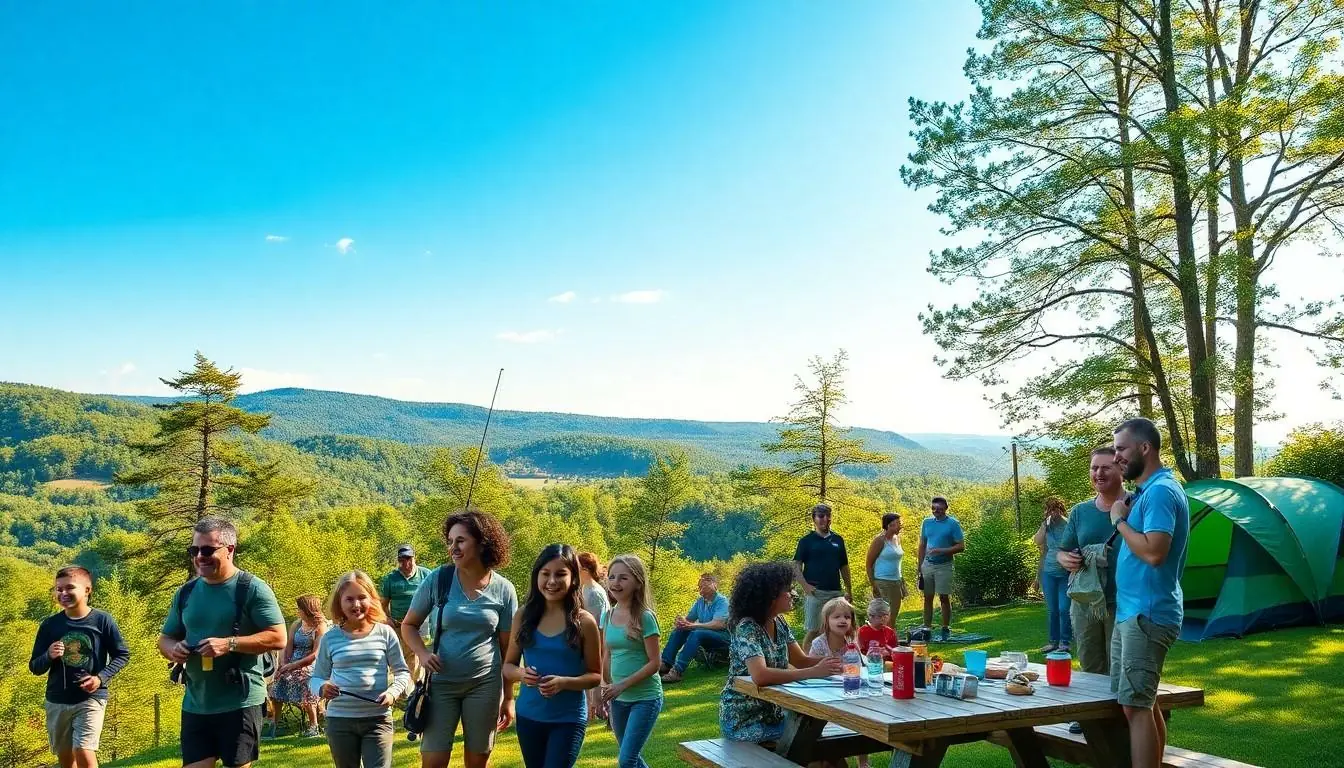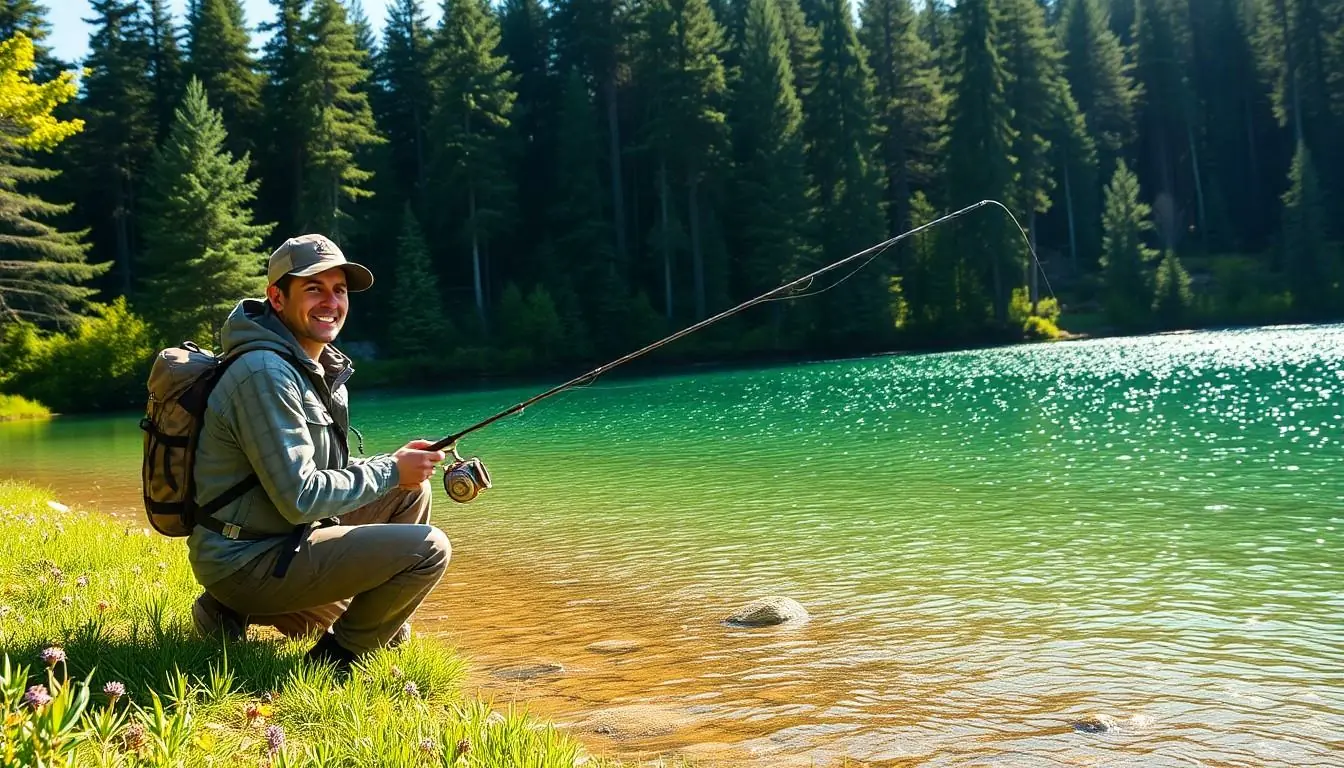Imagine waking up to the sound of birds chirping instead of your alarm clock blaring. Living off-grid isn’t just a dream for eco-warriors; it’s a lifestyle that’s becoming more appealing every day. With the world buzzing about sustainability, more folks are trading in their city lights for starry nights and fresh air.
Table of Contents
ToggleUnderstanding Sustainable Living Off Grid
Sustainable living off grid focuses on self-sufficiency while minimizing environmental impact. This lifestyle appeals to those seeking a connection with nature and a simpler way of life.
Definition of Off Grid Living
Off grid living refers to a lifestyle that operates independent of public utilities. It includes using alternative energy sources like solar panels and wind turbines. People often cultivate their own food and source water from natural springs. Building eco-friendly homes also characterizes this way of living. This approach fosters a deeper relationship with the environment.
Importance of Sustainability
Sustainability plays a crucial role in off grid living. Reducing reliance on fossil fuels helps lower carbon footprints. Incorporating renewable resources conserves natural ecosystems and promotes biodiversity. More individuals gravitate toward this lifestyle to combat climate change. Living sustainably also ensures resource availability for future generations. Transitioning to an off grid lifestyle significantly contributes to environmental stewardship.
Key Principles of Sustainable Living Off Grid
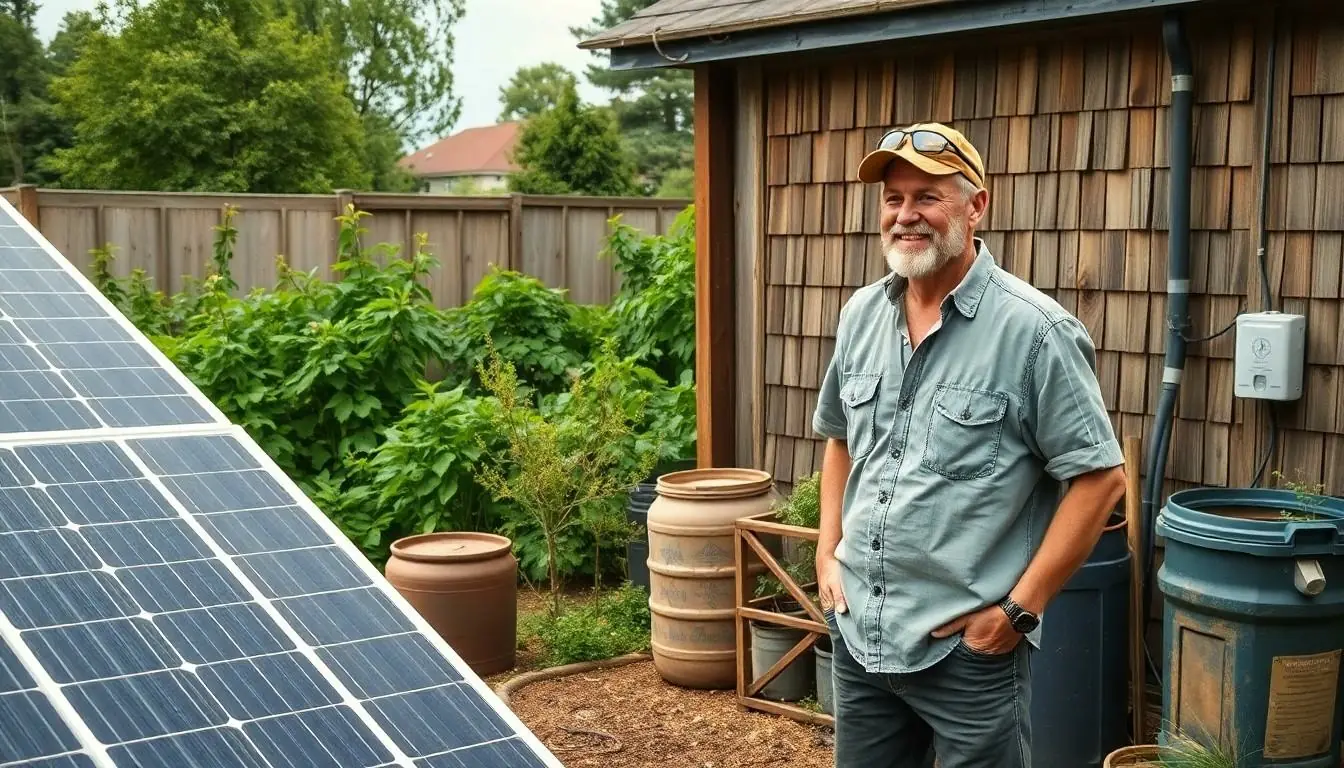
Sustainable living off grid emphasizes self-sufficiency while minimizing harm to the environment. It harnesses nature’s resources, promoting a lifestyle that connects individuals with their surroundings.
Renewable Energy Sources
Harnessing solar panels, wind turbines, and micro-hydro systems forms the backbone of renewable energy for off-grid living. Solar panels generate electricity from sunlight, often powering homes year-round. Wind turbines capture wind energy and can supplement energy needs, especially in windy regions. Micro-hydro systems utilize flowing water to produce consistent energy. These sources drastically cut reliance on fossil fuels and lower carbon footprints.
Water Conservation Strategies
Collecting rainwater serves as a primary method of water conservation in off-grid living. Installing rain barrels allows for effective rain capture. Filtering systems ensure this water remains clean and usable. Additionally, utilizing greywater systems recycles water from sinks and showers for irrigation. Efficient irrigation techniques, such as drip systems, reduce waste and maximize water use for gardens. Prioritizing these strategies leads to sustainable water management.
Waste Management Practices
Composting transforms organic waste into valuable soil amendments, enriching gardens sustainably. Separating recyclables ensures materials like glass and metal can be repurposed, reducing landfill contributions. Implementing a zero-waste approach encourages minimizing single-use products, promoting sustainable alternatives. Developing a sustainable waste plan supports continued efforts toward a cleaner environment while enhancing soil health and decreasing overall waste output.
Benefits of Choosing an Off Grid Lifestyle
Off-grid living offers compelling benefits that appeal to those seeking sustainability. Embracing this lifestyle fosters a direct connection with nature while significantly reducing one’s environmental footprint.
Environmental Impact
Transitioning to an off-grid lifestyle lowers reliance on fossil fuels, directly impacting climate change. Utilizing renewable energy sources like solar panels and wind turbines drastically reduces carbon emissions. Both air and water quality improve as individuals implement practices such as rainwater collection and greywater recycling. Biodiversity thrives in off-grid settings, where homes are built with natural materials, promoting ecological balance. Sustainable land use and permaculture methods enhance local ecosystems by conserving resources and safeguarding habitats. Adopting organic gardening techniques further minimizes chemical runoff, contributing to healthier communities. Overall, off-grid living promotes stewardship of the Earth, making it a vital choice for those passionate about the environment.
Economic Advantages
Financial savings emerge as a significant advantage of off-grid living. Eliminating utility bills reduces monthly expenses, providing more financial freedom. Investing in renewable energy systems like solar or wind generates long-term savings, often resulting in quick returns on investment. Off-grid homes often require fewer materials to build, leading to lower initial construction costs. Growing one’s own food reduces grocery bills, while food security increases through self-sufficiency. Additionally, reduced waste and effective recycling practices decrease disposal costs. Individuals often report improved economic resilience, as off-grid living shields them from volatile energy prices and urban economic fluctuations.
Personal Freedom and Independence
Independence defines off-grid living, granting individuals the autonomy to make choices aligned with their values. Detaching from public utilities fosters a sense of empowerment as people create their unique environments. Control over energy sources and food production leads to increased self-reliance. Off-grid dwellers enjoy the freedom to create lifestyles that respect nature, reducing their ecological footprints. Embracing a slower pace invites mindfulness and fosters deeper connections with family and community. Furthermore, the opportunity to live in remote areas enhances privacy and tranquility, allowing for a stress-free existence. Overall, the off-grid lifestyle provides unparalleled personal freedom that promotes autonomy and satisfaction.
Challenges of Living Off Grid
Living off-grid presents unique challenges that individuals must consider. These challenges include initial setup costs, ongoing maintenance needs, and the social implications of isolation.
Initial Setup Costs
Initial costs for off-grid living can be significant. Individuals invest in renewable energy systems, such as solar panels and wind turbines, often requiring thousands of dollars. Water systems, including pumps and storage tanks, also come with considerable expenses. Building sustainable structures typically demands upfront investment in eco-friendly materials and labor. Many people take loans or save for years before making the transition, which may delay their off-grid dreams.
Maintenance and Repairs
Maintenance becomes essential for the longevity of off-grid systems. Solar panels, for instance, require regular cleaning and occasional part replacements. Wind turbines need inspections and servicing to ensure optimal performance. Water systems often face issues like pump failures or leaks that necessitate prompt repairs. Consistent upkeep demands time and resources, impacting overall sustainability if neglected.
Isolation and Community
Isolation represents a crucial aspect of off-grid living. Many individuals experience feelings of loneliness due to living far from urban centers. Building community connections can prove challenging when neighbors may be few and far between. People often rely on online groups or local meetups to foster relationships. Finding a supportive community may enhance the overall off-grid experience, countering potential feelings of seclusion.
Embracing sustainable living off-grid offers individuals a unique opportunity to reconnect with nature while prioritizing environmental responsibility. This lifestyle not only fosters self-sufficiency but also promotes a deeper appreciation for the resources that sustain life. By utilizing renewable energy and implementing effective water and waste management practices, off-grid dwellers can significantly reduce their ecological footprint.
Though challenges exist, the rewards of personal freedom and economic savings make the transition worthwhile. As more people seek to live in harmony with the planet, off-grid living stands out as a viable path toward a more sustainable future, ensuring that natural ecosystems thrive for generations to come.
